#women's prize for fiction longlist
Explore tagged Tumblr posts
Text
The Women’s Prize For Fiction 2023 Longlist Is Here!
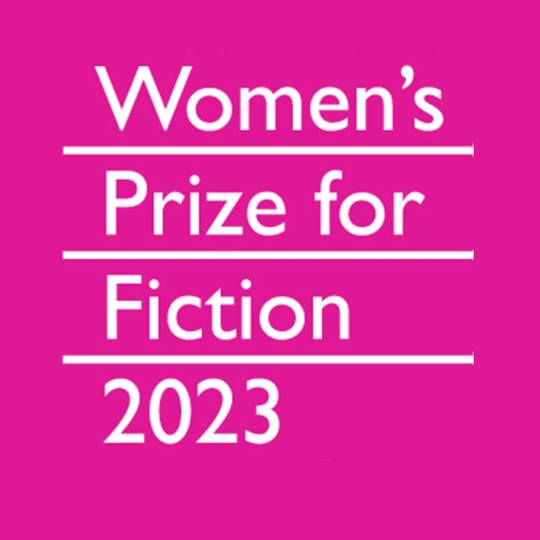
I’m pretty sure that anyone who was reading my blog around this time last year will know that I follow the Women’s Prize for Fiction very closely. In fact, it’s the only book prize that I ever want to make the effort to read as much of the longlist as I can. So, this time of year is like bookish Christmas to me and I have been SO excited over the last couple of weeks during the build-up to this announcement.
For those of you who don’t follow it, the Women’s Prize for Fiction is an annual book prize given to a book written in English by a woman over the last year. The eligibility criteria is as follows:
It must be a full-length novel (no short story collections or novellas).
It must have been originally written in English (no translations).
It must have been published in the UK between 1st April of the year before the prize and 31st March of the year of the prize (so, this year’s eligibility period was between 1st April 2022 and 31st March 2023).
So, here is this year’s longlist!

I’m A Fan by Sheena Patel. Published by Rough Trade Books on 9th June 2022. Pod by Laline Paull. Published by Corsair on 7th April 2022. The Dog of the North by Elizabeth McKenzie. Published by 4th Estate on 7th March 2023. Fire Rush by Jacqueline Crooks. Published by Vintage on 2nd March 2023. Children of Paradise by Camilla Grudova. Published by Atlantic Books on 7th July 2022. Glory by NoViolet Bulawayo. Published by Vintage on 7th April 2022. The Bandit Queens by Parini Shroff. Published by Allen & Unwin on 2nd March 2023. The Marriage Portrait by Maggie O’Farrell. Published by Tinder Press on 30th August 2022. Homesick by Jennifer Croft. Published by Charco Press on 23rd August 2022. Cursed Bread by Sophie Mackintosh. Published by Penguin on 2nd March 2023. Black Butterflies by Priscilla Morris. Published by Duckworth on 5th May 2022. Trespasses by Louise Kennedy. Published by Bloomsbury on 14th April 2022. Memphis by Tara M. Stringfellow. Published by John Murray on 7th April 2022. Stone Blind by Natalie Haynes. Published by Mantle on 15th September 2022. Demon Copperhead by Barbara Kingsolver. Published by Faber and Faber on 18th October 2022.
I’ve watched a lot of prediction videos and I was pretty sure I had a good idea of what books we’d see on this list. Having just watched the official announcement of the 16 books on the longlist, I am FLABBERGASTED at how wrong everyone was!
Demon Copperhead is the only one I’ve already read and it definitely deserves to be there. Cursed Bread, Fire Rush and The Bandit Queens are on my TBR for this month anyway. I have copies of Trespasses, Stone Blind, The Marriage Portrait, Memphis, Glory, Pod and I’m A Fan, so will be getting to them as soon as I can. There are quite a few books on here that I’ve never even heard of, so that’s very exciting!
While I am quite sad not to see some of the popular predictions on here (Tomorrow and Tomorrow and Tomorrow, Nightcrawling, A Spell For Good Things, Birnam Wood, Really Good Actually, The Rabbit Hutch), I am really intrigued to see how I get on with these books.
The shortlist of six books will be announced on 26th April, so I’ll be aiming to get as much of the longlist read before then as possible. The winner will be announced on 14th June, so you’ve got plenty of time to read them all before then, if that sounds like fun!
So, what do you think of the longlist? How many have you read? How many do you plan on reading? Are you as surprised as I am?! Now, go and read all the books, my lovely readers!
-Love, Alex x
#women's prize for fiction 2023#women's prize for fiction longlist#women's prize for fiction#women's prize#books#bookworm
3 notes
·
View notes
Text
Karen Lord || The Blue, Beautiful World
Longlist 2024 Spoiler Alert Did I ever mention in a previous blog I am not into SciFi? I think I might have. Unfortunately The Blue, Beautiful World once more proved I am definitely not into SciFi. The further the novel progressed, the more I suffered. I must admit I might have liked The Blue, Beautiful World better if it had been made into a series or a movie. I always enjoyed Star Trek and…

View On WordPress
#reading is fun#Beautiful World#Karen Lord#Science Fiction#SciFi#The Blue#Women&039;s Prize for Fiction#Women&039;s Prize for Fiction 2024#Women&039;s Prize for fiction 2024 Longlist
0 notes
Text
youtube
Women's Prize for Fiction 2024
The Women’s Prize for Fiction is the greatest celebration of female creativity in the world.
The judging panel for the 2024 prize is chaired by author Monica Ali. She is joined by author Ayọ̀bámi Adébáyọ̀; author and illustrator Laura Dockrill; actor Indira Varma; and presenter and author Anna Whitehouse.
The longlist titles announced today are:
Hangman by Maya Binyam
In Defence of the Act by Effie Black
And Then She Fell by Alicia Elliott
The Wren, The Wren by Anne Enright
The Maiden by Kate Foster
Brotherless Night by V.V. Ganeshananthan
Restless Dolly Maunder by Kate Grenville
Enter Ghost by Isabella Hammad
Soldier Sailor by Claire Kilroy
8 Lives of a Century-Old Trickster by Mirinae Lee
The Blue, Beautiful World by Karen Lord
Western Lane by Chetna Maroo
Nightbloom by Peace Adzo Medie
Ordinary Human Failings by Megan Nolan
River East, River West by Aube Rey Lescure
A Trace of Sun by Pam Williams
1 note
·
View note
Note
Can I request a further rant on Alice Albinia's The Britannias please?
Anonymous asked: 'Further rant available upon request' here is my official request.
Aha. You are both prompt and accommodating. And it is my lunch break, so let's do this!
For context, this is the book in question:
This book was recently published, comes highly reviewed and (as I said) has apparently already been longlisted for some prestigious nonfiction writing/women's prizes. I got it from the library the other day and started reading it; I'm about 150 pages in. It has given me an increasing Itch to the point where lo, yes, here I am on Tumblr about to compose a Statement. This may be because of what the book blurb states upfront as its focus and goals:
Trespassing into the past to understand the present, The Britannias uncovers an enduring and subversive mythology of islands ruled by women. Albinia finds female independence woven through Roman colonial reports and Welsh medieval poetry, Restoration utopias and island folk songs. These neglected epics offer fierce feminist countercurrents to mainstream narratives of British identity and shed new light on women's status in the body politic today.
Okay... well. Basically, she wants to write a history of Britain as focused on its islands, which in itself is a perfectly valid thing to do. As she states in the introduction, focusing on the history of a place through its physically and geographically marginalized locations, its relation to the "mainland," the constructions of power and identity, how one resists and influences the other, is all a very interesting thing to do. It's just how she does it that gives me a twitch. Her clearly stated goal is to find a "hidden women's history" wherein these "fierce feminist countercurrents" are allowed to inform and eventually subvert a totally androcentric and oblivious mainstream British history that has apparently prevailed largely unchallenged ever since antiquity, and where the Male Process of History deliberately destroyed and excluded all female contributions. She is somehow, apparently, the first one to notice this and/or put it together.
Now I'll be honest, the Secret Magical Women trope also gives me a twitch wherever it appears, whether in saccharinely self-important historical or fantasy-historical fiction or in this case, attempted historical nonfiction. Albinia's thesis also seems, essentially, directly lifted from Marion Zimmer Bradley's Mists of Avalon fantasy series in the 1980s: the pagan Celtic/British tribes were egalitarian, proto-democratic, female-led and/or female-centric, and the conquering Romans/Christians/Saxons were all virulently misogynist, masculine, authoritarian, and determined to stamp out this wherever it appeared. I have only gotten up to about the year 1000 (it goes chronologically), so I can't speak to what rationales Albinia comes up with for the later centuries, but let me just say: Hmm. It says a lot about the overall style of this book that I read the first 10 pages and then immediately picked up my phone to check Wikipedia and see if she was a TERF. As far as I can tell, fortunately, she isn't, but it does give me the same binary gender-essentialist vibe (men are from Mars, women are from Venus), and yikes. Basically, there are a lot of things going on here, and all of them are Not Good when it comes to the actual practice and investigation of premodern women's history:
First, while Albinia cites a few research articles (via endnotes) and translations of primary sources (thus far, mostly Roman and early medieval) we know nothing about her qualifications for using these sources, how she is comparing and analyzing them, whether they should in fact be taken at face value, whether anyone else has written on these topics (spoiler alert: yes), or why we are supposed to buy her narrative of this Hidden Female History of Britain. For example: she includes several passages from Roman writers discussing (reported) actions or (reported) mythologies of British women or British female-associated places. These are presented as uncritical and general fact, or something which we should apparently assume was really happening as described, even when she (occasionally, and shallowly) points to the issue of using exterior and non-contemporary male writers from far away. Her analysis also does not touch at all on the potential metatextual or political impulses these Roman male writers might have for presenting a freshly conquered imperial territory as corruptly or unacceptably feminine, and whether this correlated at all to an overall real-world practice or belief. Yes, as far as we can tell, the ancient Celts were in some ways more "feminist" than the Romans, in that Roman public culture was deliberately and exclusively masculine and patriarchal and any civic participation by women in other societies would thus appear as more than usual. But that is a whole can of worms for many reasons, none of which are highlighted or dealt with here. (Like... are we even going to talk about how the "Roman standard" for society was itself re-created by the Renaissance and how that shapes Western historical views, or...?)
As I said above, the book completely brushes aside any of the previous existing scholarship on these topics (done, you know, by actual historians) and presents it as Albinia discovering these issues or formulating these arguments for the first time. She does mention a few other people whose work she relies on or who are informing her hypothesis, but several times thus far, this is from the 1920s or some other clearly outdated argument. Nobody in the field is still treating arguments made in the 1920s as au courant, and while I can't say for certain, it reads as her being more able to access older or public-domain work (since more up-to-date publications require institutional access or paying for copies) and doing the equivalent of the people on Wikipedia who cite the 1911 Catholic Encyclopedia for everything: they can get that text for free, so that's what they refer to. Now obviously, we all support uncovering feminist strands of history, doing feminist history, challenging heteronormative or patriarchal narratives, etc. But also, we support doing it well and making some reference to the complexity of it!!!!
Likewise, Albinia is a white British woman whose previous books are based on her time living and traveling in India and Pakistan (both of which are, uh, previously British colonies). I have not read them, so I can't speak to how she treats it, but there's certainly an element of exoticizing them here, and while she does make passing reference to the British Empire's effect on those places, she does a sort of weird inverse here. She obviously knows about the basic facts of empire and colonization, but there's a notable amount of time dedicated to portraying ancient/Celtic Britain as the helpless victim of constantly brutal Roman colonization (she makes a few very brief and offhand references to cultural miscegenation and how this process unfolded in ways apart from violence, but they are clearly secondary to her main thesis of this as a masculine rape analogy). She is very clear about mourning for this "sacred divine [female] Britain" which was then destroyed by the unrelentingly violent and misogynist forces of Roman (cultural/military) and Christian (religious) colonization, and as I said, that is straight up Marion Zimmer Bradley. I haven't gotten past said first 150 pages, but I'm not terribly confident that her historical analysis improves much in the centuries to follow.
The book does have some bright spots: it's well written, it's engaging, she includes some colorful and interesting sociological vignettes about life on the margins of modern Britain, and there are certainly some things she's mentioned that I would like to look into in more depth. But yet again, this is being presented as an Authoritative or Revelatory History deserving of recognition and prizes, when there are real historians who have done so much of this work and in so much better ways. There is very little nuance to her thesis, no context or analysis or critique provided for her sources (yet again: why are we supposed to take Roman men as an authority on British women and why is she presenting them as obvious empirical fact while critiquing all other elements of their system/society?) and some squicky assumptions around gender and empire that really would need to be drawn out and examined in more detail. The Secret Magical [Pagan] Women Erased In History By Brutal Men gimmick is one that got a lot of traction with Philippa Gregory (sidenote: bookstore websites really need to stop recommending me Philippa Gregory for Women's History Month before I do crimes), and has been exasperatingly hard to eradicate ever since. Just to name one, we need to talk a lot more about the gender politics of medieval Christianity, any of the work done on this topic already, or anything else that would complicate her argument beyond the simplistic black-and-white state in which it currently exists. There are plenty of historians who would like to do that! Why don't you give some of THEM a call?!?!
Anyway. There is probably more I could say (and might), but I will leave it here for now. Thank you for the indulgence, etc.
#silver-dream89#anonymous#ask#history#women in history#ancient history#medieval history#british history
60 notes
·
View notes
Note
re: kieran culkin emmy speech — i 100% agree and like the long list for women’s prize for fiction is coming out soon i feel like girlie deserves a place on it honestly (side note: i’m so excited to read the shortlist, one of mg fav times of the year)
yes! (i am also excited) maybe this is your first full-length novel since you had amy, and it's the fiction piece you're most excited about in a long time, maybe ever. matty's like "this book is a huge deal to you, so you need a present that's a huge deal when you win the women's prize for it-", and you're like "you mean if?"; he blinks at you and says "anyway, when you win... is there anything i could give you that you particularly want?", and you just smirk and trail two fingers up his chest like "weeeeeeeeell... perhaps, maybe, we could have another kid? i miss when amy was teeny tiny". your husband grins and says "that's really what you want if you win?", and you just nod, and he kisses you and says "alright then, darling. i'm sure i could oblige". you make the longlist, then the shortlist - and in the process also several jokes to matty like "maybe you should think about getting the crib out of the garage, babe" - and the two of you get all dressed up and drop amy at uncle ross's for the night so you can attend the ceremony. it's a lovely night as is, getting to dress up and celebrate women's writing and see some of your friends, made even better by the fact you do actually win the award lmao - matty laughs as he kisses you in celebration, and again when you end your speech by saying "and finally, thank you to my husband, my other half, the love of my life, father to my daughter and ken to my barbie, matthew. not only is he extremely loving and supportive of me and my work, he also very sweetly said that if i won this award we could give amy a sibling. well, darling... your wife's a winner. best look out the baby name book when we get home, yeah? thanks again to everyone who played a part in me getting this award, it truly means the world. have a lovely night, everyone!" lol. but matty's a man of his word, so after you get some celebratory pictures taken and head back to see him, he kisses you and murmurs against your lips like "make sure you have an espresso martini or two at the afterparty, darling - can't promise either of us will get much sleep when we get back to the hotel. need to give my winner her congratulations gift, yeah?"; you're like "mmm i love you", and he's like "i love you too. and in all seriousness, babe, congratulations. m'so fucking proud of you" <3
34 notes
·
View notes
Text
the women's prize for fiction longlist is OUT!!! in case anyone is equally interested and/or wants to join me for a buddy read 🤍
5 notes
·
View notes
Text
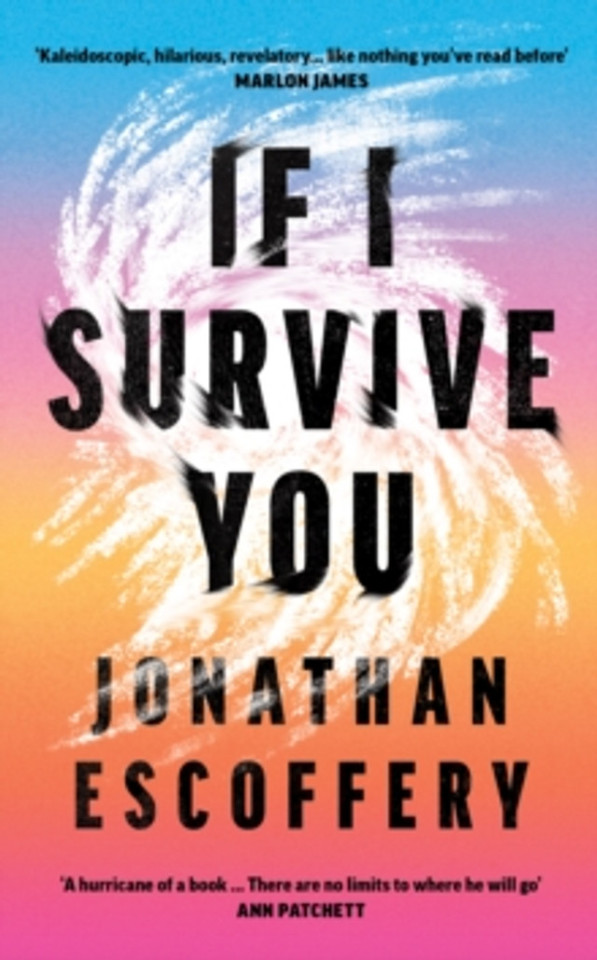
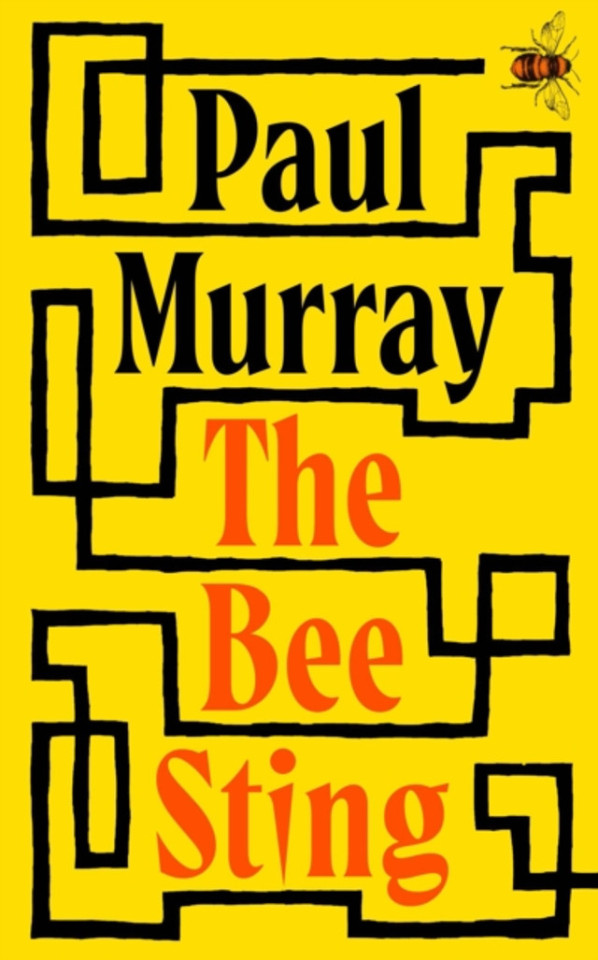



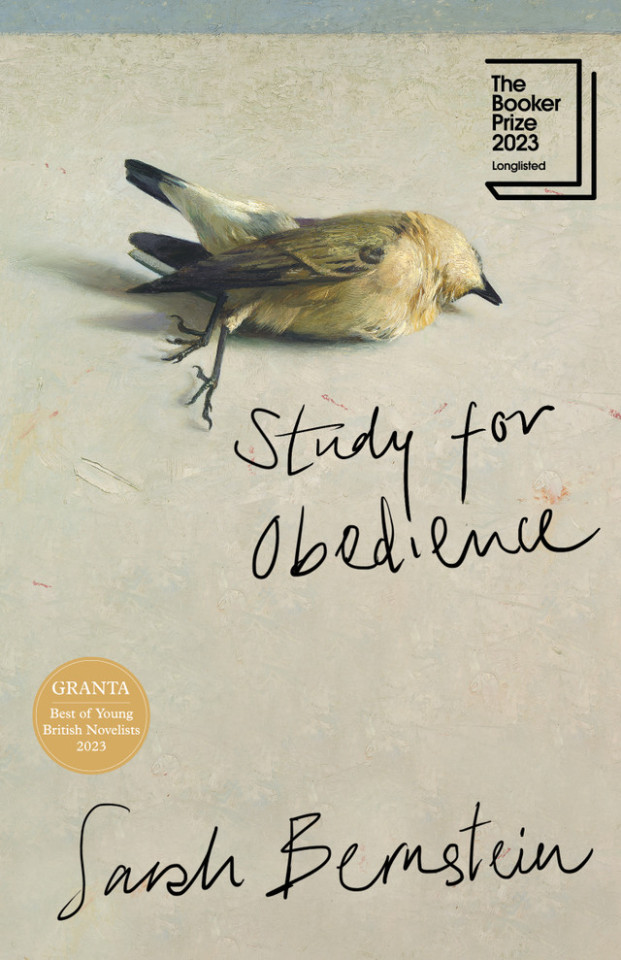
Yes, it’s that time again: next Sunday the winner of this year’s Booker prize will be announced. Everyone has their favourites and it’s easy to carp about novels the judges missed, but the truth is we don’t know which ones they consider – the list of 150-odd titles is never made public and probably any number of subterranean factors determines its makeup; a few years ago I heard of at least one big-name British author, an obvious contender, who refused to be considered. And awards – now brands in themselves – seek to establish their own identities: was Barbara Kingsolver’s Demon Copperhead crossed off the list after winning the Pulitzer and Women’s prizes for fiction?
One of the judges, Shakespeare scholar James Shapiro, recently said he isn’t comfortable with historical fiction, which perhaps had something to do with the absence from the longlist of two of the year’s most feted novels, Zadie Smith’s The Fraud and Tom Crewe’s The New Life. True, one historical novel has made the shortlist: This Other Eden (Hutchinson Heinemann), by Pulitzer-winning US author Paul Harding – but that’s no surprise: the chair of judges, Esi Edugyan, says how good she thinks it is on the cover of the book itself, published last February.
Drawing on the true story of the forced eviction of a mixed-race island community in New England before the first world war, it may have Edugyan’s vote but I think it’s a novel that’s hard to love. We follow various descendants of a freed slave as a well-meaning missionary, privately racist, attempts to spare one of them – a gifted young painter who happens to pass as white – by having him moved to a friend’s estate on shore.
At the core of what ensues is his doomed romance with his landlord’s Irish maid. But Harding relies on laboriously laid slabs of narration to generate dramatic irony as we see events from different points of view – the painter’s, the maid’s, then his family’s, confronted with her pregnancy as she visits the island in search of the painter’s past.
In his previous novel, Enon, Harding found a measure of comedy even in the plight of a father mourning the death of his teenage daughter in a road accident. Nothing to laugh about in This Other Eden, a mark of Harding’s sense of responsibility to his painful material. For sure, he wrings pathos from the injustice and horror from the climactic violence but the novel never justifies its own interest in the spectacle.
I have similar unease about Paul Lynch’s Prophet Song (Oneworld), set in a contemporary Ireland gradually riven by war between a totalitarian regime and insurgent rebels. It follows a Dublin mum of four after the arbitrary detention of her trade unionist husband. The focus is on her trials keeping the breakfast-to-bedtime show on the road amid a descent into hell, from abductions to air raids. That focus gives the novel its convincing frisson – as bombing intensifies, the protagonist’s father rings her up complaining about his neighbour’s ivy – but it also locates it firmly as thought experiment. It’s jarringly apolitical – there’s no obvious history to what’s going on – and ultimately there’s something almost obscenely decadent to its invitation to sympathise with sea-crossing refugees by recasting them as middle-class Europeans. When Eilish thinks it’s “as though some filmed transparency of a foreign war has been placed upon an image of the city”, the line catches exactly what Lynch is up to.
Still, its explosive set pieces have a visceral spell undimmed by rereading, and any sense of unease it fosters may count in its favour – whatever else it is, Prophet Song is a novel to argue about.
I preferred quieter books on the list. Kudos to the judges for spotlighting If I Survive You (Fourth Estate), a thrilling debut by US writer Jonathan Escoffery (a former student of Percival Everett, shortlisted last year for The Trees) that starts as an exploration of second-generation American identity by way of a Jamaican-descended literature graduate, Trelawny, whose morale – already battered by being second-best, at least in his father’s eyes, to his tree surgeon brother Delano – takes another hit by his graduating post-recession. He finds himself doing crazy things for money, not least being paid by a woman who puts out a classifieds ad looking for someone to hit her.
With much tenderness in the gulf between father and son, this would be a worthy winner. It’s funny, sad, always toying with assumptions about race. Don’t be misled by the opening sequence, which feels like an exercise in voice, as the second-person narration explores the contortions of internalised racism. In later sections Escoffery shines through as a first-rate scene-maker with a wicked knack for jeopardy: witness Delano’s catastrophically ill-conceived bid to retrieve an impounded cherry-picker so he can take on a job. In the title story, Trelawny winds up part of a rich white couple’s twisted sex game (and yes, this is a linked story collection, openly advertised as such on the dust jacket, a first for a prize now awarded to “longform fiction”).
Another debut that is a revelation is Western Lane (Picador) by Chetna Maroo, the only British writer here (hard not to note that she got her break from magazines in the US and Ireland). Families were clearly a hot topic for this year’s judges, but the simplicity of this book stands apart. It is narrated by 11-year-old Gopi, youngest of three daughters in an Indian family living in south London, whose father schools her in squash at a local leisure centre in the year after their mother’s death. The story evolves as she practises to compete in a tournament: the power of the novel lying in what goes unsaid between Gopi and Pa, between her and an older boy she hits with at the leisure centre, between the sisters, between her and the childless aunt and uncle in Edinburgh where she’s expected to move.
This is a beautiful tale of family – and sport. A moving yet non-maudlin novel about grief, it’s told in plain language electric with feeling, nicely catching the narrator’s incomplete understanding of her situation without making her a figure of irony. A real feat: if the metric is the ratio of number of words to emotion generated, Western Lane wins.
Paul Murray’s mighty The Bee Sting (Hamish Hamilton) is a book nearly big enough to contain the others on the shortlist, and it features many of their themes, from filial misunderstanding to civilizational collapse – or its looming shadow, seen in the ultimately catastrophic prepping of its beleaguered patriarch, a car salesman sunk by the recession, wed to the class-climbing daughter of a bare-knuckle boxer. A 650-page soap opera with a clockwork plot whose delicate mechanism you can’t hear tick: if it wins the Booker there will be a lot of delighted readers finding it under the Christmas tree.
It’s so obviously the best novel here – but will the judges talk themselves out of it? A sceptical 3,000-word review in the London Review of Books shows what might happen if you’re encouraged to think about it for too long; and remember, too, the Booker doesn’t reward the best novel of the year – not exactly – it’s more the book that survives a process that entails being read and discussed again and again over the better part of nine months.
It’s because of this that I wonder if Prophet Song will get the nod – or Sarah Bernstein’s Study for Obedience (Granta). A Canadian living in Scotland, listed this year as one of Granta’s best young British novelists, she is also winner of Canada’s prestigious Scotiabank Giller prize (twice won by Edugyan). Study for Obedience has nagged me since I read it in March. I didn’t like it then and I don’t love it now but in a list of novels about family it stands apart – an almost spectrally vague existential brainteaser soaked in 20th-century bloodshed. I can’t tell you what the novel is about, exactly, and that’s why I think it bears scrutiny. The narrator is an unnamed woman who moves to an unspecified country to take up her creepy elder brother’s affairs as a housekeeper, where her duties extend to soaping his back, and she’s permitted to watch TV only by lipreading (he says subtitles affect the play of light in the room). Strange encounters with locals never quite bloom into confrontation. Instead of drama we have discomfort and dread: between the lines lies the genocide and exile of the protagonist’s ancestors.
Trapping us in an isolated consciousness, the winding narration is full of comma-spliced caveats and double negatives that make it purposely awkward to place.
How to measure this against, say, the arrowlike flight of Maroo’s sentences aiming at the heart? I don’t envy the judges. Where they have by and large selected novels that show an uncomplicated faith in the pleasure of storytelling, Bernstein’s is the book that makes narrative a problem – the reader’s problem, some might say. But it just might be declared best on 26 November by judges who can’t be expected to spend a year agreeing with one another about how great The Bee Sting is.
Daily inspiration. Discover more photos at Just for Books…?
7 notes
·
View notes
Text
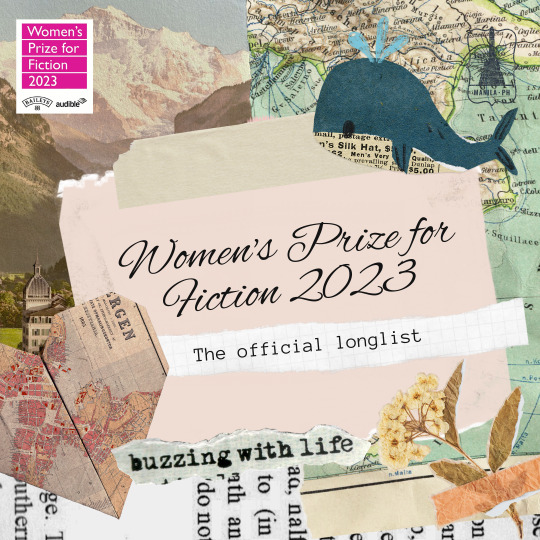
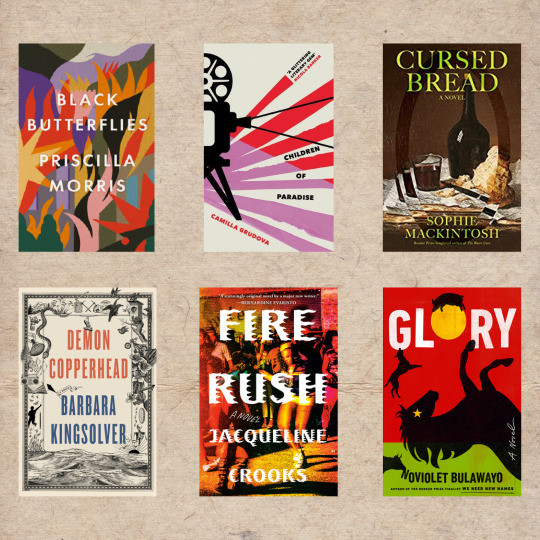
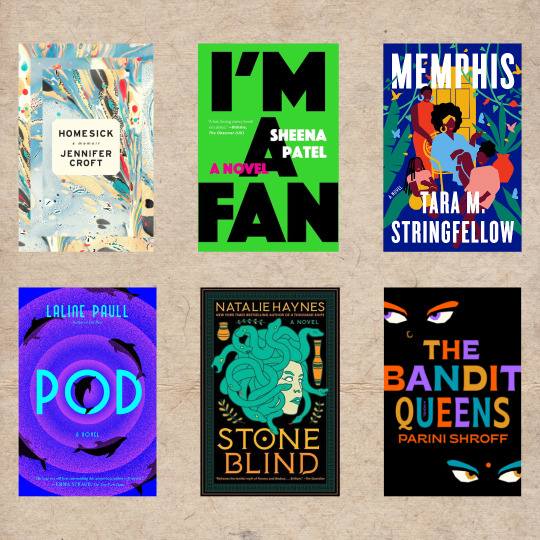
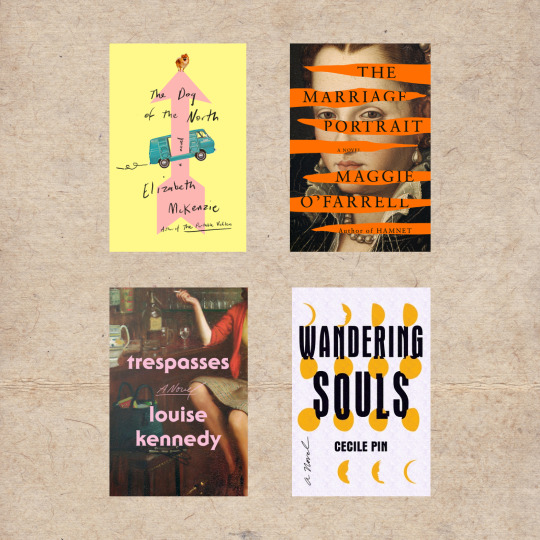
It is International Women's Month and a treat for our beloved reading women out there just came out— the 16-book longlist has just been released for 2023's Women's Prize for Fiction and your next favorite book might be in it!
The books are (in alphabetical order of title):
- Black Butterflies by Priscilla Morris
- Children of Paradise by Camilla Grudova
- Cursed Bread by Sophie Mackintosh
- Demon Copperhead by Barbara Kingsolver
- Fire Rush by Jacqueline Crooks
- Glory by NoViolet Bulawayo
- Homesick by Jennifer Croft
- I'm a Fan by Sheena Patel
- Memphis by Tara M. Stringfellow
- Pod by Laline Paull
- Stone Blind by Natalie Haynes
- The Bandit Queens by Parini Shroff
- The Dog of the North by Elizabeth McKenzie
- The Marriage Portrait by Maggie O'Farrell
- Trespasses by Louise Kennedy
- Wandering Souls by Cecile Pin
Happy reading, folks! 💛✨
ig: girlwithinfiction
#book blog#book recommendations#booksbooksbooks#bookstagram#book recs#bookish#booklover#books#women's prize for fiction#women's month#international women's month#international women's day#women in literature#women writers#tbr list
18 notes
·
View notes
Note
how do you choose the books you read?
Current nightstand books include -
Shuna's Journey by Hayao Miyazaki
Spinning by Tillie Walden
Nana by Ai Yazawa
My Name is Lucy Barton by Elizabeth Strout
My Brilliant Friend by Elena Ferrante
Dragon Keeper by Robin Hobb
The Queen of the Damned by Anne Rice
It’s sometimes following a particular train of thought… but I also check out a lot of book award longlists and shortlists! The Booker Prize, the National Book Award, the Women's Prize for Fiction, etc. just to see what's out there! I also follow a few translators and authors on Instagram and Twitter and like to see what they're reading, plus friends I trust!
I like to mix it up genre-wise and usually try to have one 'classic', some sort of realistic fiction contemporary novel, some fantasy and/or sci-fi, perhaps a graphic novel, maybe a volume of a manga I've been keeping up with, and a memoir or some nonfiction on some topic of interest. This stack is a bit slim... I'm waiting on some things in the mail, but the thought process is usually the same!
#thank you!!! sorry for this video lol#and that it is in portrait mode...#reading#also sorry i move around so much dam
17 notes
·
View notes
Text
I don’t know how many of you are into the Women’s Prize for Fiction, but the longlist is being announced on March 7th and I made a video trying to guess which books will be on it :)
https://youtu.be/klei9tEatzE
5 notes
·
View notes
Text
The Women's Prize for Non-Fiction 2024 Longlist is here!

I'm sure that long time readers of my blog or followers of my Instagram will know that I have been following the Women's Prize for Fiction very closely for the last few years. I was really excited to discover that they were launching a sister prize celebrating non-fiction written by women (because it definitely tends to get lost in the very male-dominant sphere that is non-fiction). I am not a big non-fiction reader but as I get older, I have found myself becoming more interested in it. I think I'll always be a much bigger fiction reader but there are some genres within non-fiction that I am fascinated by, so it made sense for me to take a look at what the inaugural Women's Prize for Non-Fiction longlist had to offer.
The Women's Prize for Non-Fiction is open to non-fiction books written by women in English and published between 1st April 2023 and 31st March 2024. I believe it follows the same rules as the Fiction prize, in that books have to follow a narrative and that translated books are not eligible.
So, here are the 16 books on the first ever Women's Prize for Non-Fiction longlist!

Intervals by Marianne Brooker. Published by Fitzcarraldo Editions on 28th February 2024.
Thunderclap by Laura Cumming. Published by Chatto & Windus on 6th July 2023.
Shadows at Noon by Joya Chatterji. Published by Bodley Head on 13th July 2023.
Wifedom: Mrs Orwell's Invisible Life by Anna Funder. Published by Viking on 17th August 2023.
Matrescence by Lucy Jones. Published by Allen Lane on 22nd June 2023.
How To Say Babylon by Safiya Sinclair. Published by 4th Estate on 3rd October 2023.
Some People Need Killing by Patricia Evangelista. Published by Grove Press on 2nd November 2023.
Code Dependent: Living in the Shadow of AI by Madhumita Murgia. Published by Picador on 28th March 2024.
Eve: How the Female Body Drove 200 Million Years of Human Evolution by Cat Bohannon. Published by Hutchinson Heinemann on 12th October 2023.
The Britannias: An Island Quest by Alice Albinia. Published by Allen Lane on 19th October 2023.
All That She Carried: The Journey of Ashley's Sack, A Black Family Keepsake by Tiya Miles. Published by Profile Books on 13th July 2023.
The Dictionary People: The Unsung Heroes Who Created the Oxford English Dictionary by Sarah Ogilvie. Published by Chatto & Windus on 7th September 2023.
Doppelganger: A Trip Into the Mirror World by Naomi Klein. Published by Allen Lane on 12th September 2023.
Vulture Capitalism: Corporate Crimes, Backdoor Bailouts and the Death of Freedom by Grace Blakeley. Published by Bloomsbury on 14th March 2024.
A Flat Place by Noreen Masud. Published by Hamish Hamilton on 27th April 2023.
Young Queens: Three Renaissance Women and the Price of Power by Leah Redmond Chang. Published by Bloomsbury on 11th May 2023.
So, there's the longlist. There is a good mixture in terms of theme and I'm sure a lot of people will be excited about that. I'm afraid that for me, I'm really not very interested in many of them. I have copies of Eve and Some People Need Killing, so I'll be reading them. I am also interested in Doppelganger and Wifedom but they're both very expensive in all formats at the moment, so I'll see if I can get library copies. However, almost all of the others just aren't speaking to me!
The shortlist will be announced on 27th March and the winner will be announced on 13th June, which is the same date as the winner of the Fiction Prize. So, I imagine the award ceremony will be a very big celebration of women's writing, which is always an exciting event.
What do you think of the longlist? Will you be reading any? Have you read any? Should I pick up any that I don't think I'm interested in? Let me know!
3 notes
·
View notes
Text
Kate Grenville || Restless Dolly Maunder
Longlist 2024 At first I was captivated by Restless Dolly Maunder. I loved the way Dolly’s way of speaking resembled the dryness of her Australian surroundings, I loved the fact that she was determined to make something out of her life. Somewhere halfway through I felt that she started repeating herself. Which in itself unfortunately was a fact in her life: as a woman she just could not beat the…
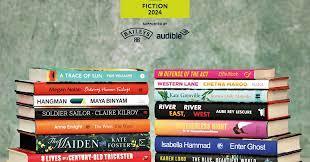
View On WordPress
#reading is fun#Australia#Australian literature#Australian writer#Canongate#Emancipation#equal rights for women#Family history#Feminism#Great Novel#Great reading#Kate Grenville#Life in Australia in 20th century#literature#Restless Dolly Maunder#Women&039;s Prize for Fiction#Women&039;s Prize for Fiction 2024#Women&039;s Prize for fiction 2024 Longlist
0 notes
Text
does anyone want to do like a book club for the women's fiction prize longlist picks? it came out today and i am obsessed with the picks.
2 notes
·
View notes
Note
2 and 15 please and thank you
2. Did you reread anything? What?
I reread Hav by Jan Morris, Invisible Cities and The Left Hand of Darkness, all beautiful, haunting sci fi/speculative fiction novels that have my heart forever. I also re-read The Immortal Life of Henrietta Lacks and Full Body Burden, two phenomenal and deeply human works of science journalism that have stayed with me. In May I reread Submission in honor of the 2022 French election, which was fun. Plus a handful of poetry books, which I do every year.
15. Did you read any books that were nominated for or won awards this year (Booker, Women’s Prize, National Book Award, Pulitzer, Hugo, etc.)? What did you think of them?
I read The Netanyahus, which won last year's fiction Pulitzer, and absolutely loved it. After it won the Booker I read The Seven Moons of Maali Almeida and enjoyed it but didn't think it was stellar. I didn't read anything else on the list so I can't say how it compared to the others. On the International Booker longlist I read Paradais (great, disturbing) Love In the Big City (good, fun) and am making my way through The Books of Jacob. I got Tomb of Sand, which won the International Booker, for Christmas and am looking forward to reading it, will report back on what I think. (Just now realizing the Booker and Int'l Booker were won by South Asian writers. That's pretty cool.) I didn't read many of the National Book Award finalists but I enjoyed His Name Is George Floyd (shortlisted for nonfiction, imo deserved to win), The Mummy Eaters (longlisted for poetry) and The Haunting of Hajji Hotak (shortlisted for fiction).
1 note
·
View note
Text

Ma'am Patricia Evangelista Filipina journalist and documentary filmmaker based in Manila. Best Bookwork Some People Need Killing The book was named one of the ten best books of 2023 by The New York Times as well as being one of the 100 must read books of 2023 according to Time Magazine. The book was also longlisted for the 2024 Women's Prize for Non-Fiction. Congrats Ma'am Pat #Idol One of My Favorite Book in Memoir, History, Politics and True Crime. @patevangelista @tamsbookstore @feu_publications @rappler @ancalerts247 @bookfestph @nbdbphilippines
1 note
·
View note
Text
0 notes